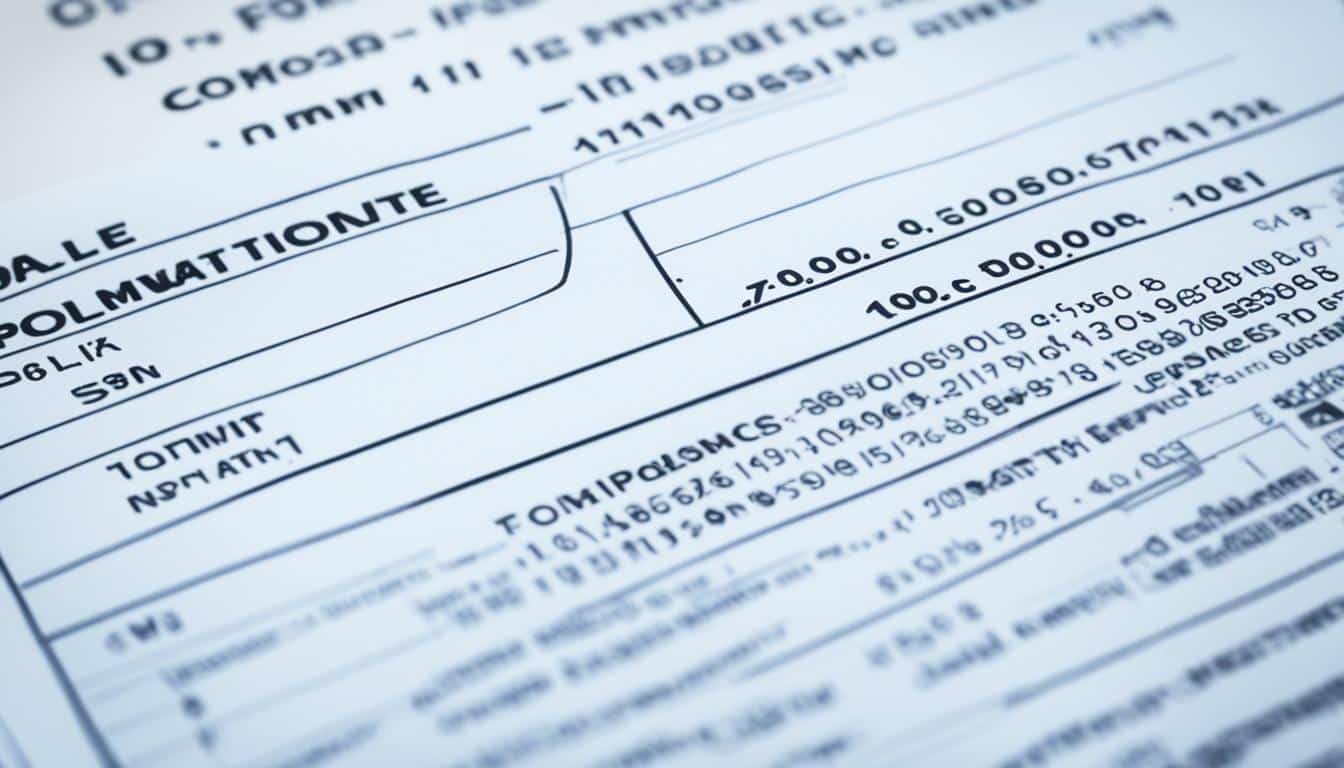Selling your home? You might wonder about real estate commissions and taxes. It’s a big worry for homeowners, but don’t worry! We’ll make it clear about realtor fees and selling costs.
When you sell your house, the IRS looks at more than just the sale price. They see real estate commissions as part of your costs. So, if you sell your $300,000 dream home for a 6% commission, the IRS sees the sale price as $282,000. That’s smart, right?
But wait! Before you think about tax deductions, there’s a catch. You must have lived in your home for at least two of the past five years. And it must be your main home, not a vacation spot.
Remember, these deductions are just part of the puzzle. It’s like solving a Rubik’s cube blindfolded – hard but doable. That’s why talking to a tax advisor before big moves is smart.
Key Takeaways
- Real estate commissions can be deducted from your home sale proceeds
- The IRS views commissions as part of your selling costs
- You must have lived in the home for 2 out of 5 years to qualify for deductions
- Property must be your primary residence for deductions to apply
- Consult a tax advisor for personalized guidance on real estate transactions
Understanding Real Estate Commissions and Taxes
Buying or selling a home comes with costs. Agent commissions are a big part of these costs. Let’s look at how real estate agent commissions affect the price of selling a home.
What are real estate commissions?
Real estate commissions are fees paid to agents for their work in property deals. These fees are usually 3% to 6% of the home’s sale price. The commission is split between the buyer’s and seller’s agents.
The role of commissions in property transactions
Commissions are key in real estate deals. They pay agents for their knowledge, marketing, and time helping with the sale. Agents use these fees to pay for things like licenses, insurance, and marketing.
How commissions impact your bottom line
When you sell your home, commissions affect your profit. For instance, a 6% commission on a $300,000 home sale means you pay $18,000 in fees. This lowers your profit and raises the cost of selling your home.
Some costs from selling your home might be tax-deductible. While you can’t directly deduct commissions, agents can deduct business expenses. These include marketing, office supplies, and travel miles for work.
- Marketing expenses are fully deductible for agents
- Agents can deduct 67 cents per mile for business travel in 2024
- Home office deductions may apply for agents working from home only
Knowing these details can help you make better choices when buying or selling property. Always talk to a tax expert for advice on real estate and taxes.
Are Real Estate Commissions Tax Deductible?
When you sell your home, you might ask about tax deductions for home sellers. Real estate commissions aren’t directly deductible. But, they can lower your taxable gain. The IRS lets you subtract commission fees from the sales price.
This reduces the amount you pay capital gains tax on.
For real estate pros, it’s different. They can fully deduct commission payments as a business expense. This includes fees to other agents, coworkers, or employees. Real estate pros can deduct many things:
- Home office deductions (up to $1,500 using the Simple Square Footage method)
- Desk fees charged by franchises or brokers
- Education and training costs
- Office supplies and equipment
- Telephone and internet costs
Home sellers can deduct closing costs too. These include appraisal fees, advertising costs, and more. The property must be your main home for at least two of the five years before selling.
Remember, selling real estate gains are capital gains, not regular income. For example, a $300,000 home sale with a $15,000 commission means a $85,000 gain. Luckily, homeowners can exclude gains of $250,000 or less ($500,000 on a joint return) if they meet certain rules.
Handling these deductions can be hard. It’s smart to talk to a tax advisor when selling your home. They can help you get the most deductions and understand the tax rules.
Maximizing Tax Benefits When Selling Your Home
Selling your home can be a big win, but knowing about taxes is key. We’ll look at how to get the most tax benefits and pay less tax when you sell your property.
Deductible Expenses for Home Sellers
Home selling costs you can deduct are a big plus. These include legal fees, ads, and real estate commissions. Real estate commissions are often the biggest deduction, taking 2% to 6% of the sale price.
Capital Gains Exclusions for Primary Residences
The IRS gives homeowners a break with capital gains exclusions. Married couples filing together can exclude up to $500,000 of profit. Single people can exclude up to $250,000. You must have lived in the home for at least two of the last five years to qualify.
Documenting Home Improvements for Tax Purposes
Don’t overlook home improvements! Big changes like adding rooms or new floors can lower your taxable gain. Keep records of all upgrades. This will help you when tax time comes.
- Track receipts for materials and labor
- Take before and after photos of improvements
- Maintain a home improvement journal
Knowing about tax write-offs can cut your tax bill when you sell your home. Tax laws change often, so always check with a tax expert for the latest advice.
Conclusion
Finding your way through real estate commissions and taxes can be hard. Realtor fees aren’t directly tax deductible. But, they can help lower your taxable gain when you sell your home. This means the net selling price after fees affects your capital gains tax.
Expenses like appraisal fees, advertising, and closing costs can be deducted from your profits. For example, California Flat Fee offers a $5,000 flat rate. This could save you thousands compared to traditional 3-5% commission rates. Also, you can get exclusions on capital gains: up to $500,000 for married couples and $250,000 for singles on primary residences.
Keep good records of your home improvements. They can help lower your taxable gains. If you’re a real estate agent like Sarah, who made $100,000 but paid $18,200 in expenses, your taxable income could be $81,800. With a 22% tax rate, Sarah would take home $63,804.
Whether you’re selling your childhood home or flipping houses, knowing these tax rules can save you money. Always talk to a tax expert to make sure you’re not missing out. In real estate, every dollar matters!








